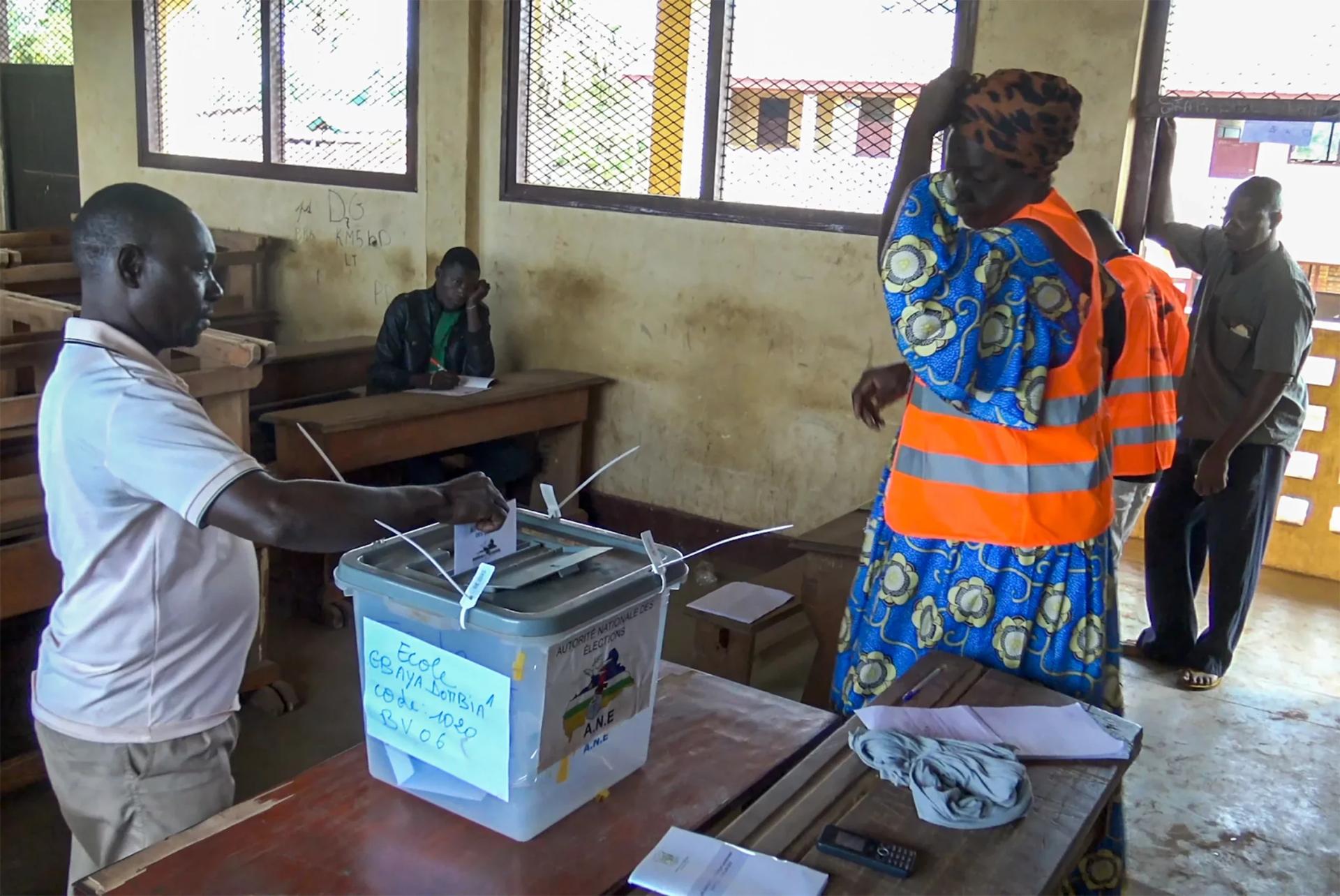YAOUNDÉ, Cameroon – Rahamatou Bidem uses a piece of plastic to fan herself amid the Sahelian heat. The 62-year-old mother of six is one of the over 26,000 Central African Republic (CAR) refugees in Cameroon.
She now calls Gado-Badgere in Cameroon’s East region home, after conflict in her homeland – often framed along religious lines – forced her out of the country.
“I fled when I heard that Djotodia was going to come back,” she told Crux.
Djotodia led the predominantly Muslim Séléka rebel coalition that forced President Francois Bozize out of power in March 2013. He failed to control the excesses of the Séléka rebels, who faced rising criticism over continued attacks on civilians, particularly Christians.
Christian youths subsequently formed a movement of resistance called the anti-Balaka. Djotodia eventually fled the country and sought refuge in Benin. However in July 2014, Séléka announced that Djotodia had been restored as leader of the group.
Rahamatou, a Muslim woman, is married to a Christian. She is also the product of mixed faiths: Her father is a Muslim, and her mother is a Christian.
The prospects of Djotodia returning sparked her fears of renewed fighting that would leave her caught in the middle – that fear was all but confirmed when the warring factions fought each other near a hospital in Bangui.
RELATED: Bishop-elect says the Church must defend Central African Republic ‘from danger’
“My sister [a Christian] was in labor. Bullets were flying all over the place. She had forced delivery and died in the process. Fortunately, the child survived. I took the child with me. She is about nine years old now,” she said.
“I was afraid and took my children and we fled,” she told Crux. Cameroon is host to a staggering 350,000 CAR refugees.
Zilangka, another refugee who for 33 years worshiped as a Muslim, has now converted to Christianity after Muslim-dominated Séléka rebels attacked her.
“Seleka Rebels came to my house. They raped me and they raped my 14-year old daughter,” she told Crux.
She recalled the rebels taking her to an undisclosed location.
“I believe they wanted to kill me,” she said. “They killed one woman in front of me.”
Zilangka said her luck was that she had some money on her.
“When they confiscated the money I had, they started quarrelling over how to share it. I took the opportunity and sped away,” she said.
She then took her daughter, and they fled across the border to Cameroon, but her Christian teenager has not been able to overcome the trauma.
Zilangka says her daughter has suffered several bouts of rapes even in Cameroon.
“She has given birth to three children without a husband. Now, I have to take care of all those children – with nothing I can call mine,” she said.
War over raw materials, not religion
Despite the religious undertones of the war in the CAR, the country’s leading prelate, Cardinal Dieudonne Nzapalainga, has been consistently saying that it isn’t a religious war.
In an exclusive interview with Crux in July 2017, he said it was a war over the control of the country’s vast, untapped raw materials.
“No Christian or Muslim leader leads any of these extremist groups,” the cardinal said then.
“If it were an inter-religious conflict, then you wouldn’t see Christian leaders sheltering Muslims fleeing conflict, and Muslim leaders sheltering Christians…it is a political and economic war; people are fighting over land and mineral resources,” he said.
The landlocked former French colony spans some 240,000 square miles, and has an estimated population of 5.5 million. Despite the presence of raw materials like diamonds, gold, uranium and graphite, the country remains chronically poor, with the World Bank estimating that almost 7 out of 10 people are living on less than $2.15 per day.
In June last year, the bishops made a strong case for a partnership between the state and the Church in the effort to restore peace to the troubled nation.
Noting that peace is priceless, the bishops called for inter-community and socio-economic peace, as well as peace between all political and military entities, adding “all our efforts must converge.”
It is a call that still rings true today. Rahamatou Bidem and Zilangka say they are very reluctant to return to their homeland.
“I do not know if I have any family members left,” Rahamatou told Crux. “How do you go back to such uncertainty?”
Zilangka added: ‘What do you go back to? I have lost everything. If peace returns, maybe I could return. For now, it’s a simple no.”














